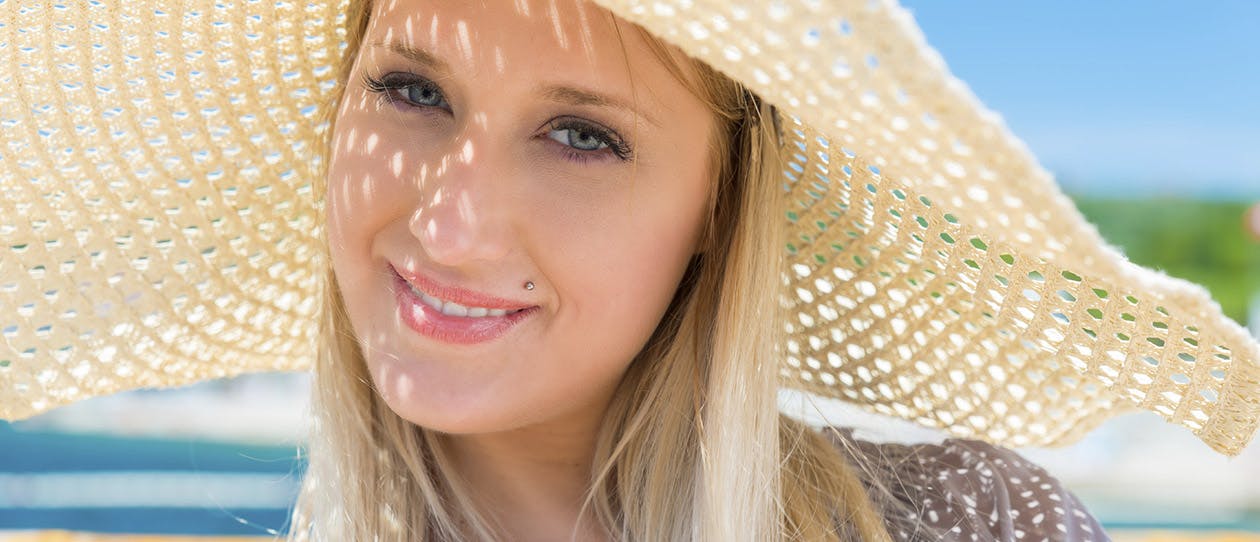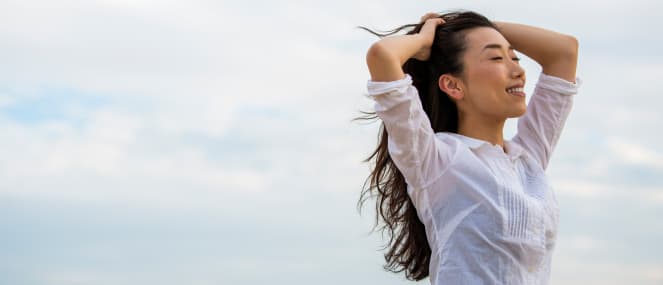
- Health hub/
- Guide To Protecting Your Nails, Hair And Skin/
- Antioxidants boost skin health


Most experts agree that the sun's damaging effect on the skin has to do with oxidative damage. The sun's UV radiation causes the formation of free radicals and helps contribute to the development of skin cancer and premature ageing of the skin. Building safe sun habits into your daily routine is essential to help protect your skin and keep it cancer free.
But having good skin can also work from the inside, new research demonstrates. Antioxidants act as scavengers of oxygen free radicals and new studies have found that by replenishing the skin's antioxidant capabilities you can boost the skin's natural UV-filtering properties, preventing sunburn and possibly even skin cancer.
Vitamin C makes up an important part of the skin's antioxidant system and UV exposure significantly depletes the skin's vitamin C reserves. So, if a person has low stores of vitamin C to begin with, UV light makes them even lower yet. In a recent study, researchers found skin levels of vitamin C were maximised after applying a 15 percent topical solution of vitamin C over three days.
The research found that vitamins C and E are powerful skin protectors and that they work together to prevent sunburn. Although each vitamin functions well separately, they strongly complement each other when used in combination. One study found that an oral combination of vitamins C and E in high doses - 2g of vitamin E and 3g of vitamin C per day for 50 or more days provided significant protection against sunburn, whereas either vitamin alone was ineffective. Such research supports the hypothesis that the oral use of vitamins E and C increases resistance to sunburn. These antioxidants are thought to reduce the risk of skin cancer, and are expected to provide protection from the sun.
Another study indicated that antioxidants found naturally in food sources such as green leafy vegetables, carrots, corn and eggs or supplements can absorb, and thus filter out, UV radiation. Of the participants in the 12-week trial, those who took the carotenoid supplement of beta-carotene, lutein and lycopene significantly reduced their susceptibility to sunburn after three months compared to the group that only took the placebo.
In other research it was revealed that antioxidants in the form of green tea had significant skin protection and anti-inflammatory effects, reducing sunburn. Black tea also appeared to have properties that may provide some protection against skin cancers.
This latest research provides strong evidence that the intake of combined antioxidants contributes in a positive way to minimise premature ageing in skin and enhance the skin's resistance against UV sunburn and skin cancer. By taking antioxidants you may neutralise free radicals, which are associated with ageing and the development of degenerative diseases.
The researchers recommend not only use of oral and/or topical antioxidants but sunscreen (use SPF 15 or higher), protective clothing when out in the sun and a hat that shades the face, neck, and ears as cancer fighters. Antioxidants should be considered as highly effective enhancers to sun protection.
Antioxidants can be found in many foods including fruits and green leafy vegetables. They are also available as dietary supplements sold in supermarkets, pharmacies and health food stores.
References available on request




